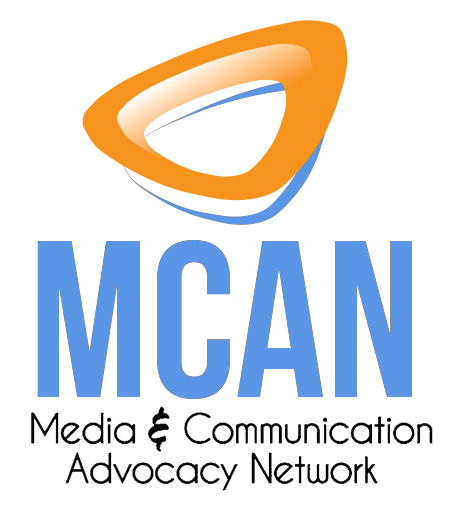A GNA Feature by Priscilla Oye Ofori
Accra, Nov. 18, GNA – Dropping out of school, decades back was synonymous with most vulnerable communities, especially where parents are poor and unable to cope with financial pressures.
Background
In such communities, it becomes almost an abomination to try to work hard to rise above the accepted standards of the area.
Akua Mansah, (not real name), an adolescent mother in the Central Region, has however braved all odds to complete Senior High School (SHS).
She is also aiming at a higher level thanks to an intervention that helps adolescents, especially girls, to get better.
Education?
Akua lived with her mother, stepfather and 11 siblings; her stepfather maltreated her, and she therefore found comfort from her helper who later became her boyfriend that provided her with some basic needs.
At age 16, Akua Mansah got pregnant, dropped out of school and her parents sent her off to cohabitate with the boyfriend and his grandmother.
However, after series of engagements with International Needs Ghana (INGH), a non- governmental organisation, Akua Mansah’s mother brought her back home and she delivered a baby boy after surviving birth complications that almost took her life.
After bracing for the storms of teenage pregnancy and its challenges, she returned to school to write the Basic Education Certificate Examination (BECE).
INGH collaborated with the Ghana Education Service (GES), Ghana Health Service (GHS) and Department of Social Welfare to ensure that Akua Mansah stayed in school.
Determined to succeed in addition to playing her role as a mother, Akua Mansah, went home during break time to breastfeed her baby who was in the care of his grandmother and returned to school until she completed Junior High School.
Her determination and hard work paid off as she was successful at the BECE and moved into Senior High School (SHS).
Akua completed SHS this year 2024, where she studied Home Economics and is determined to proceed to the university and aspires to be a nurse, a responsible mother to her son and also make her mother proud.
Others?
Akua Mansah’s story is one out of the many stories of change emanating from the Promoting Adolescent Safe Spaces Project (PASS) which is being implemented by INGH in partnership with the United Nations Population Fund (UNFPA), under the Global Programme to End Child Marriage.
The project seeks to contribute to girls fully enjoying their childhood free from the risk of marriage; making choices and decisions about their relationship formation/marriage, childbearing and education.
The PASS project uses the safe space model to engage adolescent girls to end child marriage and related issues.
Like Akua Mansah, there are many stories of adolescents who are cohabitating and going back to school or pursuing a vocation.
Through mentorship programmes, adolescents have been oriented to have big dreams and aim to achieve a better future for themselves and their communities.
Engagement with boys on the PASS project has led to changes in behaviors, attitudes, and perceptions about gender-based roles and norms.
Communication betwen parents and adolescents
Many parents and caregivers are embracing positive parenting and the need to improve the relationship between them and their adolescents to support their holistic development.
The safe spaces have also served as platforms for stakeholders namely the Department of Social Welfare and Community Development and the Ghana Health Service to educate adolescents to improve their welfare.
According to the UNFPA, UN’s Sexual and Reproductive Health Agency, one in five girls are formally married or are engaged in an informal union before their 18th birthday.
In Ghana, about one in five girls below age 18 years would experience child marriage, with the country already a home to over two million child brides (UNICEF/ UNFPA).
The Global Programme to Accelerate Action to End Child Marriage promotes the rights of adolescent girls from age 10 to 19 to avert marriage and pregnancy and enables them to achieve their aspirations through education and alternative pathways.

In 2016, UNFPA and United Nations Children’s Fund (UNICEF) launched a global programme to tackle child marriage in 12 of the most high-prevalence or high-burden countries: Bangladesh, Burkina Faso, Ethiopia, Ghana, India, Mozambique, Nepal, Niger, Sierra Leone, Uganda, Yemen and Zambia.
Informed decisions
In an interview with the Ghana News Agency, Ms. Gloria Mateko Asare, Project Manager, PASS Project at INGH said empowering adolescents helped them to make informed decisions about their education, relationships formation, marriage and childbearing.
Ms. Gloria Asare said it was imperative to adopt a holistic approach to end child marriage, hence INGH has been engaging girls, women, boys and men and other stakeholders including parents, opinion and traditional leaders in the Central Region.
Ms. Asare called for collective efforts to support empowerment programmes, increased community sensitisation on child marriage to change harmful cultural practices to protect the rights of girls and project gender equality to break the cycle of poverty.
INGH started implementing the PASS project in 2019 in three administrative Districts in the Central Region namely the Cape Coast Metropolis, the Mfantsiman and Komenda/Edina/Eguafo/Abrem Municipalities.
In 2024, INGH is implementing PASS in 18 communities in the Cape Coast Metropolis, Agona West and Assin Foso Municipalities.
Over 8,000 adolescents and 67 communities have so far been reached since 2019.
GNA

